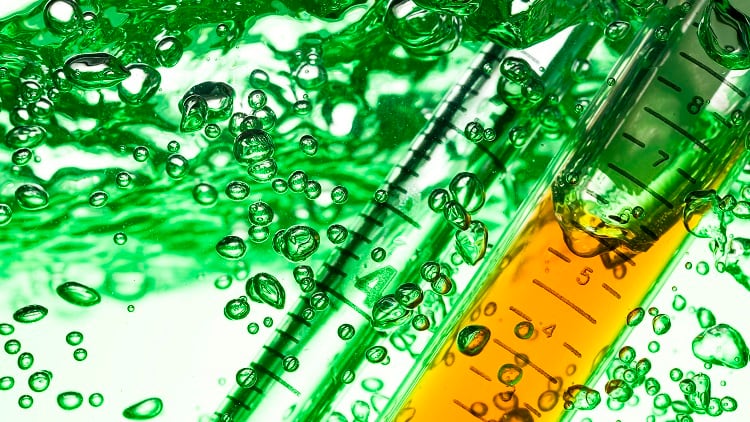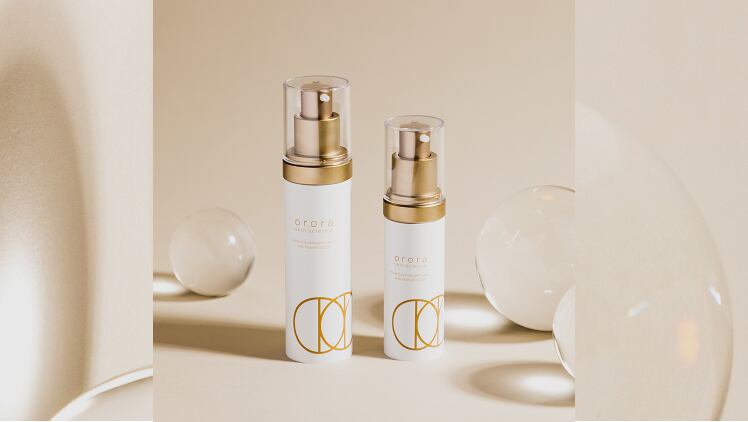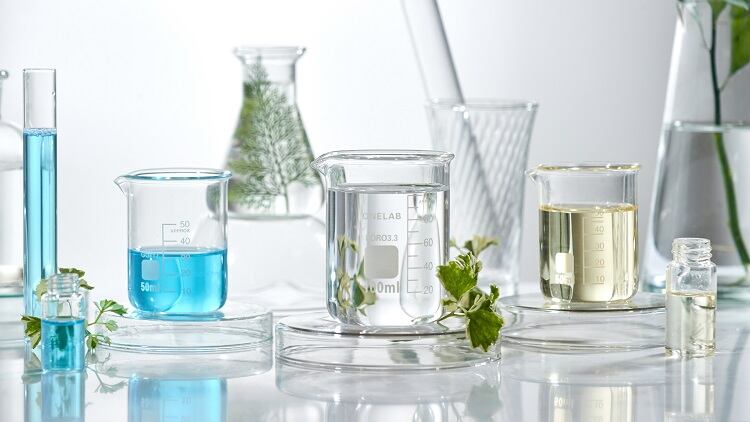Ingredient makers like Geltor, Genomatica, Amyris, ROELMI HPC, Ginkgo Bioworks, Hydromer, and others have been making headlines with biotech beauty ingredient innovations here on ComseticsDesign.com for years now.
But it seems that finally, biotech beauty is at a tipping point. And new ventures like Apoena Biotech in Brazil, new organizations like The SynBio Coalition, and new ingredients like macrocyclic musk lactones from Conagen are illustrative of this meaningful moment in beauty history.
Brazil-based Apoena Biotech is innovating for the future of skin care
Apoena Biotech is the first Brazil-based biotechnology company dedicated entirely to beauty and personal care ingredient production. And the company’s Managing Director Bruno Carillo sees it as a business opportunity to do better when it comes to environmental sustainability: “Biotechnology,” he says in remarks shared with Cosmetics Design, “is the best way to access nature [while] preserving the planet.”
The Apoena Biotech ingredient portfolio includes an antioxidant-rich Kombucha, the microbiome stimulating lactobacillus-based Solubióticos, the Antioox ingredient blend made with Moringa and Salvia Hispanica extracts, and more. Describing the company’s production process, Juliana Nakayama, Bioprocess Manager at Apoena Biotech says that “the control of biotech products is in bioreactors where they are produced, following parameters of pH, temperature, dissolved oxygen, among others, ensuring reproducibility, high quality standard and performance suitable for application as prebiotics, probiotics or postbiotics.”
Genomatica and other biotech leaders join forces to advance synthetic biology
Readers of Cosmetics Design will recall that earlier this year an organization called The SynBio Coalition arrived on the scene with the express purpose of “making sure that the US continues to have a leadership position in the synthetic biology industry,” as this publication reported in April.
And in a recent interview with Cosmetics Design Editor Deanna Utroske, Damien Perriman, Senior Vice President of Specialty Products at Genomatica, explained the company’s motivation for helping to launch the coalition saying, “Synthetic biology is already having a significant, positive impact on many industries globally, including medicine and agriculture. It’s also helping companies to make more sustainable everyday products — and that impact is poised to grow. Genomatica is looking to advance synthetic biology as a driver of technological innovation and economic growth. We helped create the Synthetic Biology (SynBio) Coalition to promote the growth of the synthetic biology industry overall and to champion US leadership in the field. Additionally, we aim to collaborate with the US federal government to develop and grow our biomanufacturing capabilities.”
Being a coalition, the group is open to additional members: “The coalition is open to academic organizations, non-profits and industry stakeholders, which could include companies that grow and process the renewably sourced feedstocks used in synthetic biology, build production plants or market products made with synthetic biology — in addition to biotechnology firms,” says Perriman.
“Members,” he tells Cosmetics Design, “gain insight into congressional hearings and legislation and give input into coalition prioritization and meetings with policymakers, depending on the level of involvement. This insight and input help drive the industry forward overall and offers a chance to highlight and advocate for specific ideas championed by the members.” A contact form is available on The SynBio Coalition site.
As for Genomatica’s own progress in the beauty biotech space, Perriman details the growth that the company has seen since launching its butylene glycol ingredient—brand named Brontide—to the beauty ingredient marketplace in 2018. (Brontide is a registered trademark of Genomatica.)
“Genomatica’s Brontide natural butylene glycol business has grown sixty times since our initial market launch in 2018, and we have fulfilled over 3,000 sample requests worldwide to support adoption,” says Perriman. “Today we have customers across the globe — from Australia to Korea, from Japan to North and South America, and throughout Europe. The ingredient can be used in a variety of personal care applications — ranging from extracts to sheet masks, sticks, serums and more. Interest in evaluating the ingredient as a substitute for petroleum-derived butylene glycol has been high, but we have been most encouraged by the exploration of new applications, where butylene glycol wasn’t previously used such as acting as a carrier for cannabinoids.”
And he shares further insight into the ingredient’s adoption in the industry saying that, “Today we have over seventy buying customers. Natural butylene glycol appeals to a wide range of beauty manufacturers — from indie brands to mega-beauty brand companies — and everyone else in between. The majority of our customers are using Brontide natural butylene glycol in their formulas as an emollient, a humectant, a preservative booster, a skin-feel modifier, a solvent, a viscosity enhancer, and as a carrier for fragrances and active cosmetic ingredients. We are working with leading ingredient suppliers and contract manufacturers as well as brands like Peter Thomas Roth Clinical Skin Care, Lady of Beasts and Elvis + Elvin which are among the many companies that have been quick to adopt the ingredient to create more sustainable personal care products ranging from serums to moisturizers and masks.”
Conagen brings macrocyclic musk lactones to the fragrance ingredient marketplace in 2021
At the start of the year, the Massachusetts-based biotech company Conagen launched new musk lactones to the beauty and fragrance ingredient marketplace. Musk is historically sourced from animals and as such is in limited and inconsistent supply and is swiftly falling out of favor with vegan and purpose-led beauty consumers.
According to a press release issued at the time of the launch, “Conagen successfully bridged its gamma-lactone production technology with its lipid platform to expand its lactone portfolio to natural musk scent macrocyclic lactones.”
“The expansion of Conagen’s lactone platform to macrocyclic lactones with musk fragrances adds to our momentum in meeting consumers’ demand for nature-based, clean ingredients,” emphasizes Dr Casey Lippmeier, Vice President of Innovation at Conagen.
“I am excited,” he tells the press, “by the new prospects our musk lactones bring as they have grown rapidly from a proof-of-concept technology to commercial production.” And while the Conagen lactones are not the first biotech fragrance notes to hit the market, they are an important development in the shift to greener beauty science.
This article was updated on 22-June-2021 to clearly state that
Brontide is a registered trademark of Genomatica.




